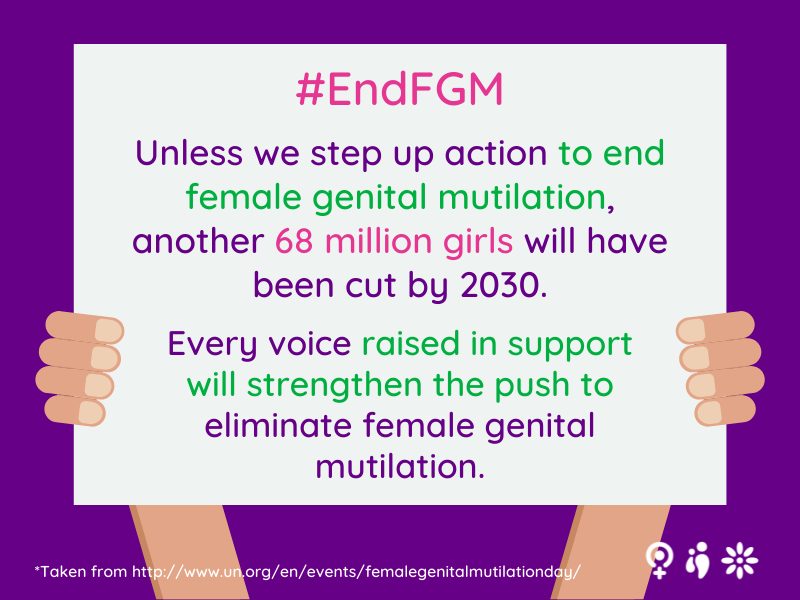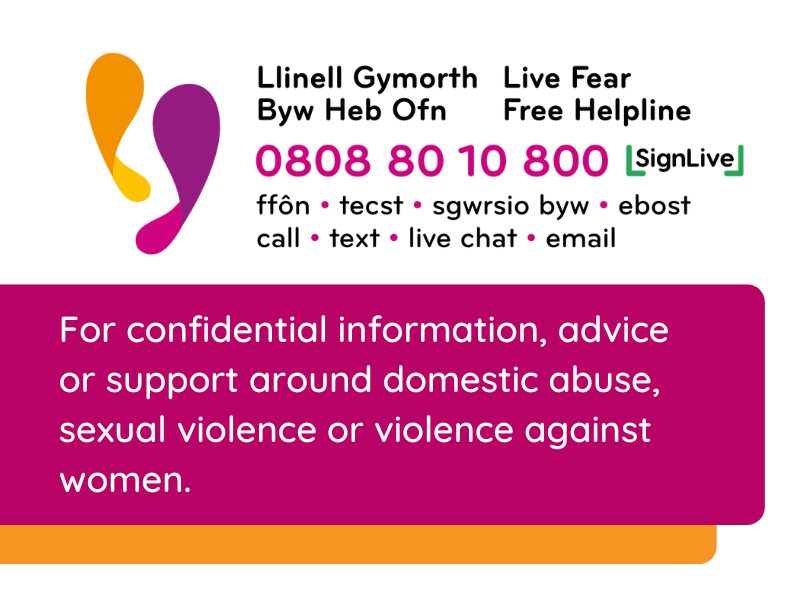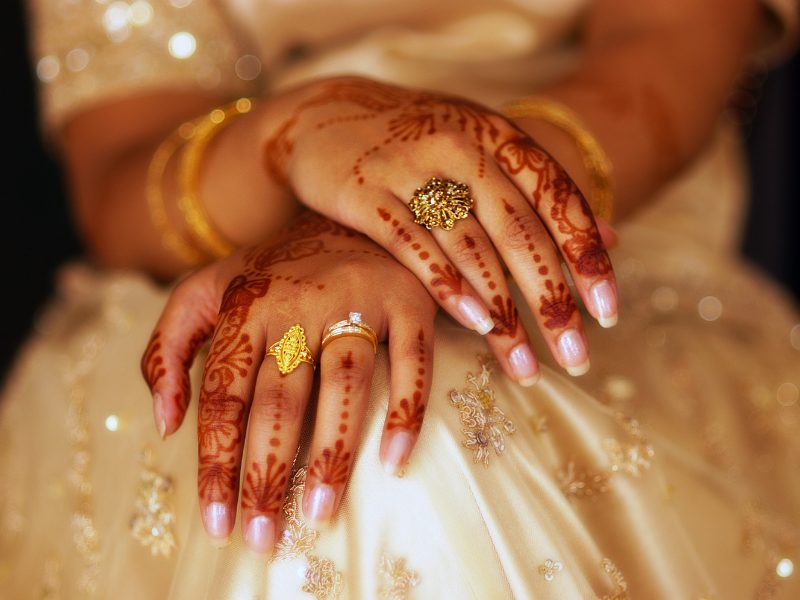What is female genital mutilation (FGM)?
Female genital mutilation (FGM) refers to a range of procedures intended to either injure or partially or entirely remove the external female genitalia for any non-medical reason. It is typically conducted on girls between 1 and 15 years old, but survivors may be older or younger.
Female genital mutilation is a global issue. Some claim it is carried out for religious reasons, but it is not a requirement for any religion and the practice predates most religions. FGM has been condemned by the United Nations and more widely by many religious leaders and organisations around the world.
Types of female genital mutilation
There are four main types of FGM1:
- Type 1 (clitoridectomy): removing part or all of the clitoris
- Type 2 (excision): removing part or all of the clitoris and the inner labia
- Type 3 (infibulation): narrowing of the vaginal opening by creating a seal, formed by cutting and repositioning the labia
- Other harmful procedures: these may include pricking, piercing, cutting, scraping, or burning the female genitalia
The impacts of female genital mutilation
There are no medical benefits of FGM, but it can have serious adverse effects such as:
- Severe pain
- Chronic infections and consequent health complications, for example, blood-borne viruses
- Shock, haemorrhage, and death
- Post-traumatic stress disorder (PTSD)
- Depression and anxiety
- Organ damage
- Difficulty passing urine and abnormal menstruation
- Scar tissue
- Damage to the reproductive system, which may lead to infertility
- Pain during sex or low libido
- Complications during pregnancy and labour
- Low self-esteem

For support
Anyone affected by these forms of violence and abuse should be able to access help and support when they need it and every case should be taken seriously.
The Live Fear Free Helpline is available 24 hours a day, 7 days a week for women, children and men experiencing domestic abuse, sexual violence or other forms of violence against women.
- Call 0808 80 10 800
- Email info@livefearfreehelpline.wales
- Text 07860 077333
- Visit https://gov.wales/live-fear-free/contact-live-fear-free to use our webchat service.





